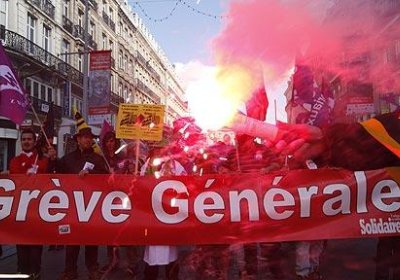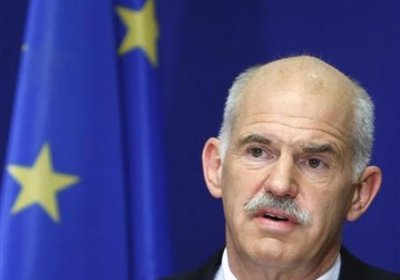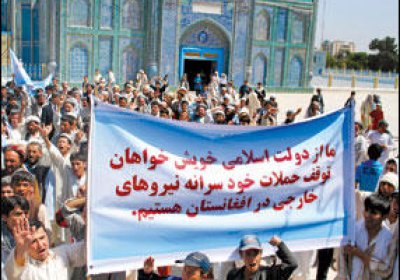Millions of workers joined a one-day strike in India on February 28 in defence of public ownership and for stronger labour rights.
Eleven major trade unions called the action to protest against the United Progressive Alliance government's policy of selling stakes in state-owned companies.
They also demanded an amendment to minimum wage laws to keep pace with inflation, pensions for all workers and the registration of trade unions in different industries.
Tom Mellen
A union representing 20,000 oil and gas workers in Nigeria announced on January 12 that it would shut down all production from January 15 unless the government restored a petrol subsidy it scrapped on January 1.
The Pengassan union said if the government refused, it would be “forced to go ahead and apply the bitter option of ordering the systematic shutting down of oil and gas production”.
Pengassan president Babatunde Ogun had told members to “be on red alert in preparation for total production shutdown”.
Thousands of Swazi people marched through Mbabane on September 5, burning images of Swaziland's absolute monarch King Mswati III.
Protesters sung freedom songs and chanting slogans against his agenda of pay freezes and cuts to student allowances.
Striking public-sector staff, who took part in the rally, called for increased taxes on the monarch and his wealthy cronies instead of welfare cuts.
The rally kicked off the Swaziland United Democratic Front's Global Week of Action. Over the next six days, workers planned to stage a series of strikes.
Portugal's working class brought the country to a standstill on November 24 to press the Socialist Party government to scrap its regressive cuts program.
The general strike against European Union-mandated austerity, the first to be organised jointly by Portugal's two main unions since 1988, is the country's largest ever stoppage.
Trains and buses did not run, planes were grounded and banking services halted.
Greece’s government intends to bump up sales taxes for the third time this year and slash spending on health care. The new measures were included in the 2011 budget it submitted to parliament on November 18.
Prime Minister George Papandreou’s Panhellenic Socialist Movement (PASOK) government has already raised the sales tax twice this year. Papandreou had pledged not to introduce any measures that would cause more hardship for ordinary Greek citizens — such as new taxes.
A million trade unionists marched past Rome’s Colosseum on October 16 in defence of rights that Prime Minister Silvio Berlusconi’s government and Fiat bosses are trying to water down.
The attacks are part of the government’s “deficit reduction” measures.
Under red flags, and the banners of the metal workers’ union (FIOM-CGTI), workers from metal and other industries, students and opposition politicians shouted: “Strike, strike, strike!”
Citizens rallied in two Afghan cities on July 10 and 11, chanting slogans against the occupying powers and the unpopular regime of President Hamid Karzai for failing to protect civilians.
On July 10, hundreds took to the streets of Mazar-i-Sharif to demand that all occupation forces leave.
The protest was organised after an artillery barrage from occupying NATO forces killed six civilians in Paktia province on July 8 and US troops killed two civilians in a pre-dawn raid in the city on July 7.
Protesters chanted slogans against occupation forces and Karzai.
Citizens rallied in two Afghan cities on July 10 and 11, chanting slogans against occupying powers and the unpopular regime of President Hamid Karzai for failing to protect civilians.
On July 10, hundreds took to the streets of Mazar-i-Sharif to demand that all occupation forces leave.
The protest was organised after an artillery barrage from occupying NATO forces killed six civilians in Paktia province on July 8 and US troops killed two civilians in a pre-dawn raid in the city on July 7.
Protesters chanted slogans against occupation forces and Karzai.
Greek workers staged their sixth general strike this year on July 8. The strike halted public transport, stopped ferry services, and closed schools, newspapers, courts and public hospitals.
About 100,000 people took part in protest rallies in Athens and Thessaloniki, chanting: “Workers, answer the war declared by capitalists with war” and “Let the oligarchs pay for the crisis”.
Italy reeled under the impact of a general strike on June 25 as trade unionists and their allies took to the streets to defend the welfare state against the Berlusconi government’s plans to slash public spending by about $36 billion.
Transport workers led the action. Bus, tube and rail services were paralysed for four hours throughout the country.
Airline employees, car workers and public-sector staff joined major demonstrations in Rome, Milan, Bologna and Naples.
Sixty thousand public-sector workers from across Romania rallied in central Bucharest on May 19 to protest against government plans to slash their wages and benefits under a loan deal with the International Monetary Fund (IMF) and European Union (EU).
Civil servants, teachers, doctors and retirees blew whistles and yelled “Down with the lying government!” and “You have pawned our future”, as they protested outside government offices in Victoriei Square.
Hungary’s nationalist Movement for a Better Hungary (Jobbik) party has won 17% of the vote in national elections, placing it third after the right-wing Fidesz party and the incumbent governing Hungarian Socialist Party (MSZP).
Hungary's nationalist Movement for a Better Hungary (Jobbik) party has won 17% of the vote in national elections, placing it third after the right-wing Fidesz party and the incumbent governing Hungarian Socialist Party (MSZP). Fidesz's result of 52.8% in the first round translated into 206 seats in the 386-seat legislature.
- Page 1
- Next page






